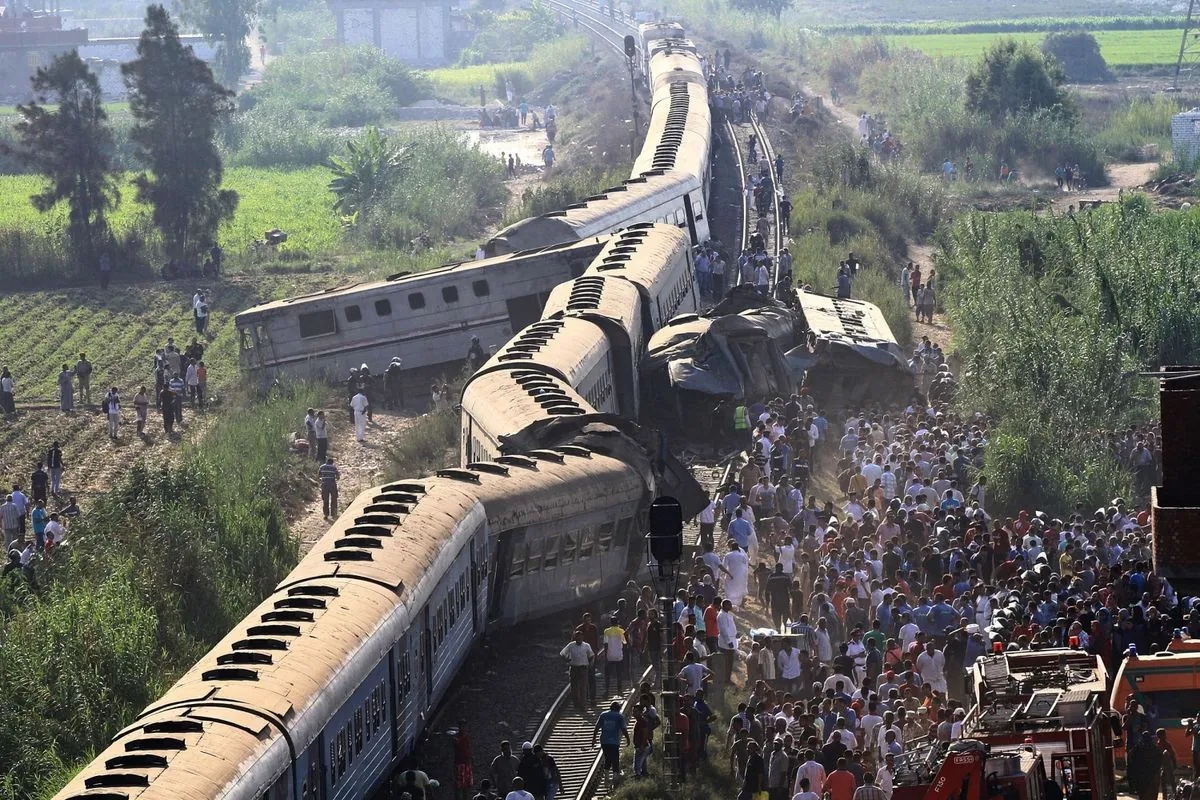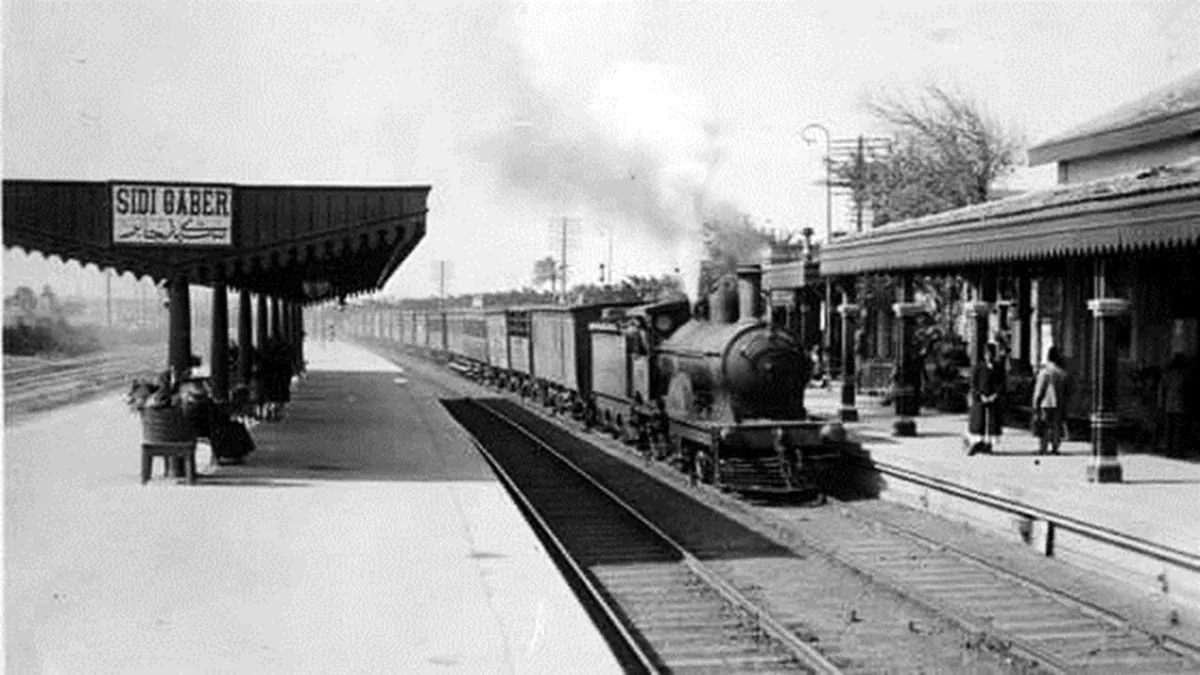Fatal Train Collision in Egypt Highlights Ongoing Railway Challenges
A train crash near Alexandria, Egypt, resulted in two fatalities and two injuries. The incident underscores persistent issues with the country's aging railway infrastructure and recent efforts to improve safety.

In a recent incident highlighting the ongoing challenges faced by Egypt's railway system, a train collision occurred in Borg el Arab, a city west of Alexandria. The accident, which took place on August 21, 2024, resulted in two fatalities and two injuries, according to local authorities.
The Alexandria governor's office reported that the crash was caused by a truck present on the tracks during a scheduled train passage. The train, originating from El-Dabaa, derailed upon impact. This incident is the latest in a series of railway-related accidents that have plagued Egypt in recent years.
Egypt's railway network, one of the oldest globally, has been grappling with infrastructure challenges and management issues. The system, which spans over 5,000 km of track and transports more than 500 million passengers annually, has been a focus of government improvement efforts.

Approximately six years ago, President Abdel Fattah el-Sissi announced plans to invest 250 billion Egyptian pounds (equivalent to $8.13 billion at the time) to overhaul the country's neglected rail network. This initiative was part of a broader strategy to address the aging infrastructure and improve safety standards.
Despite these efforts, train accidents have continued to occur. In March 2021, a collision between two trains in the southern city of Tahta resulted in 32 fatalities. The following month, another derailment in Qalyubia province claimed 11 lives. These incidents underscore the persistent challenges facing Egypt's railway system.
The Egyptian National Railways (ENR) has been working on several fronts to enhance safety and efficiency. Efforts include upgrading the signaling system, importing new train cars and locomotives, and collaborating with international partners to improve management practices. Additionally, the country has plans to construct its first high-speed rail line, aiming to modernize its transportation infrastructure.
However, many issues remain, including the manual operation of numerous level crossings and the strain placed on the system by Egypt's rapidly growing population. The railway network, heavily subsidized by the government, continues to face scrutiny over maintenance practices and human error in operations.
The deadliest train disaster in Egypt's history occurred in February 2002, when a fire broke out on an overnight train traveling from Cairo to southern Egypt, resulting in over 300 fatalities. This tragedy is considered one of the worst rail disasters globally and serves as a somber reminder of the importance of railway safety.
As Egypt continues its efforts to improve its railway system, incidents like the recent collision in Borg el Arab emphasize the urgent need for sustained investment and reform in the sector. The safety and reliability of this crucial transportation network remain vital for the millions of Egyptians who rely on it daily.


































